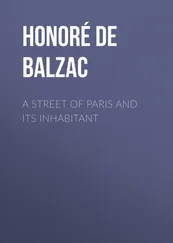Henry Edwards - Old and New Paris - Its History, Its People, and Its Places, v. 2
Здесь есть возможность читать онлайн «Henry Edwards - Old and New Paris - Its History, Its People, and Its Places, v. 2» — ознакомительный отрывок электронной книги совершенно бесплатно, а после прочтения отрывка купить полную версию. В некоторых случаях можно слушать аудио, скачать через торрент в формате fb2 и присутствует краткое содержание. Жанр: foreign_antique, foreign_prose, Путешествия и география, на английском языке. Описание произведения, (предисловие) а так же отзывы посетителей доступны на портале библиотеки ЛибКат.
- Название:Old and New Paris: Its History, Its People, and Its Places, v. 2
- Автор:
- Жанр:
- Год:неизвестен
- ISBN:нет данных
- Рейтинг книги:4 / 5. Голосов: 1
-
Избранное:Добавить в избранное
- Отзывы:
-
Ваша оценка:
- 80
- 1
- 2
- 3
- 4
- 5
Old and New Paris: Its History, Its People, and Its Places, v. 2: краткое содержание, описание и аннотация
Предлагаем к чтению аннотацию, описание, краткое содержание или предисловие (зависит от того, что написал сам автор книги «Old and New Paris: Its History, Its People, and Its Places, v. 2»). Если вы не нашли необходимую информацию о книге — напишите в комментариях, мы постараемся отыскать её.
Old and New Paris: Its History, Its People, and Its Places, v. 2 — читать онлайн ознакомительный отрывок
Ниже представлен текст книги, разбитый по страницам. Система сохранения места последней прочитанной страницы, позволяет с удобством читать онлайн бесплатно книгу «Old and New Paris: Its History, Its People, and Its Places, v. 2», без необходимости каждый раз заново искать на чём Вы остановились. Поставьте закладку, и сможете в любой момент перейти на страницу, на которой закончили чтение.
Интервал:
Закладка:
Stories are even told of men so innocent that they acted as spies without being aware of it. Such a one was Michel-Perrin, of Mme. de Bawr’s tale, which, in its dramatic form, gave Bouffé one of his best parts. The simple-minded man had in his youth, when he was a student of theology, known Fouché, afterwards to become Napoleon’s Minister of Police. In due time Michel-Perrin took orders, and was doing duty in a little village when, under the Revolution, public worship was abolished. Calling upon Fouché to ask his old friend for some suitable employment, he can obtain nothing until, moved by the urgency of his solicitations, the Police Minister suggests to him, with so much delicacy that his true meaning remains unperceived, that he shall walk about the public places, go into cafés and restaurants, and frequent all kinds of resorts where people congregate, and that he shall then return to Fouché with an account of anything remarkable he may have seen or heard. This seems to the delighted Michel-Perrin mere child’s play, and he regards it as little more than a pretext on the part of the generous minister for handing him every evening a gold piece. When, however, the unconscious spy finds one day that he has revealed a political conspiracy, and jeopardised the lives of many, perhaps innocent men, he suddenly awakens to a sense of what he has been doing, and in horror throws up his employment. Fouché, it seems, was pained to have humiliated the unoffending priest, and, public worship being just at that time restored, he used his influence with Napoleon to obtain the ingenuous man’s re-appointment as village curé.
Under the Revolution the spy was replaced by the official denunciator, an agent no less formidable. At length came the Empire, and then Fouché invested espionage with the importance of a science. In 1812 the “brigade of safety” appeared, which was first composed of four agents, but which, in 1823 and 1824, always under the direction of the famous Vidocq, numbered close upon thirty. Delavau, the prefect of police, had permitted him to establish, on the public road, a game known as “troll-madam”; and this game, an excellent trap for boobies and passers-by whose slightest words and actions were keenly watched by Vidocq’s hounds, produced, from the 20th of July to the 4th of August, 1823, a net profit of 4,364 francs. This sum was added to the subvention already granted to the spy department.
The Prefect Delavau returned to the method of Lieutenant Berryer in employing as spies convicts, whom he threw back into prison for the slightest fault. One of his predecessors, Baron Pasquier, had endeavoured, like Berryer, to enlist domestic servants into the secret police force; and, with this object, Delavau renewed an old ordinance, calling upon them to get their names noted in the books of the prefecture every time they entered a situation or left one. The domestics, however, perceived the motive of Delavau’s measure, and were so unanimous in withholding their names from the books in question, that all idea of family espionage, on which much value had been set, was soon to be abandoned. Delavau drew even more largely upon the criminal class for his myrmidons than Pasquier had done, and in his day no public gathering took place at which some felon, released for the purpose from gaol, was not lurking about for an ill-sounding word or a suspicious gesture. Such agents as these worked with the industry of bloodhounds. “Between the populace and the subalterns of the police,” says the historian Peuchet, “there is a continual war; the latter are ill-bred dogs who seize every opportunity for applying their fangs. The police will never inspire respect for order so long as part of its force consists of released gaol-birds who owe a grudge to the whole of the people. When these two elements are in contact there is inevitably a fermentation.” The justice of these remarks was recognised by M. Delavau’s successor, M. de Belleyme, whose first care was to dismiss and even restore to their respective prisons this army of felon-spies. To-day, although he has not risen much in public estimation, the spy of the police-force is a citizen in every sense of the word, enjoying all the rights of a Frenchman, and not obtaining his commission from the prefecture until after his past life and his moral character have stood the test of a keen investigation. Thus espionage has been purified as far as that is possible; but whether the system is not in itself essentially immoral, is a question which has exercised the minds even of such writers as Montesquieu. “Espionage,” he says, “is never tolerable; if it were so it would be practised by honest men; but the necessary infamy of the person indicates the infamy of the thing.” This is in effect another version of the famous utterance of Argenson, who, reproached with employing as spies none but rogues and villains, exclaimed: “Find me honest men who will do this work.” The present prefecture of police believes it has found such men, and the discovery, if it has really been made, is a fortunate one indeed.
Another variety of police spy to be met with in Paris is the officious volunteer spy. He may belong to the lower or to the higher ranks of society. He takes upon himself to observe and to denounce, without instructions, and solely in the hope of a pecuniary recompense. This variety is probably the most contemptible and the vilest. It should be mentioned, too, that the French capital swarms with invisible and unrecognisable spies, disguised, as they sometimes are, beneath an appearance of luxury or magnificence. This or that personage passes for a member of the diplomatic service. He is an admired figure in fashionable drawing-rooms, and while affecting to converse on the European situation, exercises the ear of a fox terrier and the eye of a hawk. Then, of course, there is the military spy, who is superior to the civil variety inasmuch as whilst the latter, in case of recognition, only incurs a more or less disagreeable misadventure, the former is liable to be shot. The military spy, therefore, may have all the heroism of the professed soldier.
The civil spy system was naturally developed to an extraordinary degree by the subtle Richelieu. His secret agent took as many shapes as Proteus. Now it was a brave old seigneur, infirm and professedly deaf, in whose presence people would not hesitate to speak out and say everything, but who recovered his vigour and his legs in order to go and report to the cardinal a conversation of which he had not missed one detail. Now it was a woman, who, having insinuated herself into the intimate friendship of some young and brilliant courtier, wrested from him a dangerous and terrible secret. But it was not only throughout the length and breadth of France that Richelieu had spies; numbers of them were in his pay abroad, all over the Continent indeed, regularly reporting political intrigues, and furnishing clandestine copies of secret treaties.
Enough, however, of the spy; let it simply be added that he has been introduced into two novels by Balzac, into one by Hugo, and into two by Alexandre Dumas, who has likewise made him figure in a couple of plays.
Let us pass from the most slinking and distasteful Paris character to the most open and, as many consider, the most charming one – from the “espion,” that is to say, to the “écuyère.”
At Paris the circus-woman is the object of a much higher admiration than in London. Théophile Gautier, in his dramatic feuilletons, has frequently shown that he preferred the equestrian fairy of the circus to the sylph who dances at the opera. He goes into ecstasies over her agility, vigour, and courage, and is displeased with nothing but the drapery in which her lower limbs are enveloped, holding that, just as the most virtuous fashionable woman or actress takes care to exhibit her bare arms if they are beautiful, so the “écuyère” of the circus should be allowed to display the full symmetry and grace of her legs. The “écuyère” whom Balzac brings on the scene in his Fausse Maîtresse , Malaga by name, is an excellent type of the French circus-woman, who is nearly always without relatives, sometimes a foundling, sometimes a stolen child, and who, coming one knows not whence, goes, the idol of a day, one knows not where. “At the fair,” says the greatest of French novelists – or rather, one of his characters – “this delicious Columbine used to carry chairs on the tip of her nose – the prettiest little Greek nose I ever saw. Malaga, madame, is skill personified. Of Herculean strength, she only requires her tiny fist or diminutive foot to rid herself of three or four men. She is, in fact, the goddess of gymnastics. Careless as a gipsy, she says everything that enters her head; she thinks as much of the future as you do of the halfpence you throw to beggars, and sometimes sublime things escape from her. No one could ever persuade her that an old diplomatist is a beautiful youth; a million could not change her opinion. Her love is, for whoever inspires it, a perpetual flattery. Endowed as she is with really insolent health, her teeth are thirty-two exquisite pearls encased in coral.”
Читать дальшеИнтервал:
Закладка:
Похожие книги на «Old and New Paris: Its History, Its People, and Its Places, v. 2»
Представляем Вашему вниманию похожие книги на «Old and New Paris: Its History, Its People, and Its Places, v. 2» списком для выбора. Мы отобрали схожую по названию и смыслу литературу в надежде предоставить читателям больше вариантов отыскать новые, интересные, ещё непрочитанные произведения.
Обсуждение, отзывы о книге «Old and New Paris: Its History, Its People, and Its Places, v. 2» и просто собственные мнения читателей. Оставьте ваши комментарии, напишите, что Вы думаете о произведении, его смысле или главных героях. Укажите что конкретно понравилось, а что нет, и почему Вы так считаете.












